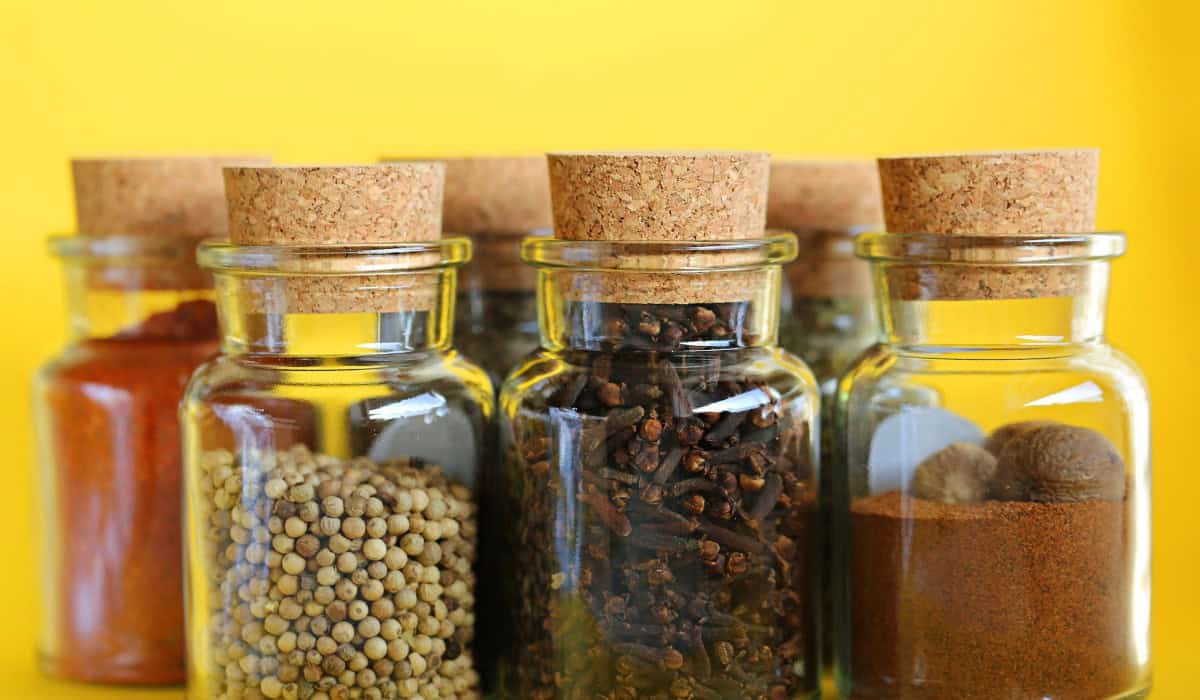Unlocking the Power of Herbal Remedies
Exploring the realm of natural supplements opens a gateway to managing glucose levels through the bounty of nature. Among the various options, bitter melon stands out for its health benefits, particularly its role in diabetes management. This fruit has been shown to help lower fasting blood sugar, making it a valuable ally in the fight against diabetes. Milk thistle, another herbal remedy, supports liver health, which is crucial for regulating blood sugar levels.
While the journey towards optimal glucose control may seem daunting, incorporating herbal remedies into your routine can offer a holistic approach. Each supplement, from bitter melon to milk thistle, contributes uniquely towards stabilizing blood sugar levels. It’s not just about reducing sugar intake; it’s about harnessing the health benefits of nature’s pharmacy to complement traditional diabetes management strategies.
Embracing these natural supplements requires understanding their properties and how they can be integrated effectively into your daily life. With a focus on the health benefits of bitter melon and milk thistle, among others, you can unlock the potential of herbal remedies to manage glucose levels. This exploration is not just about finding alternatives but about adding powerful tools to your glucose control arsenal.
The Foundation of Glucose Control
At the core of managing blood sugar levels lies the importance of making informed food choices. What you eat has a direct impact on your glucose levels and overall health. A diet rich in whole foods, lean proteins, and healthy fats, paired with a mindful approach to carbohydrate intake, can lay a solid foundation for glucose control.
Understanding the relationship between your diet and blood sugar levels is the first step towards effective management. By prioritizing food choices that support stable glucose levels, you set the stage for a healthier lifestyle. It’s a proactive approach that not only aids in managing diabetes but also in preventing it.
Understanding Blood Sugar Levels and Insulin Sensitivity
Blood sugar levels and insulin sensitivity are crucial to understanding how your body processes sugar. Insulin, a hormone produced by the pancreas, plays a key role in this process. When insulin sensitivity is high, your body uses insulin efficiently, helping maintain balanced blood sugar levels. Conversely, insulin resistance can lead to elevated glucose levels, increasing the risk of type 2 diabetes.
Milk thistle has been recognized for its potential to support healthy blood sugar levels. While it’s not a direct substitute for insulin therapy, incorporating milk thistle into your regimen can offer supportive benefits for insulin sensitivity and overall glucose management.
How Dietary and Herbal Supplements Can Enhance Insulin Resistance
The inclusion of dietary and herbal supplements can be a game-changer for enhancing insulin resistance. Bitter melon, with its health benefits, plays a significant role in diabetes management by helping lower fasting blood sugar levels. This natural remedy mimics insulin’s effects, aiding in glucose uptake and utilization by the body.
By understanding the role of these supplements in diabetes management, you can make informed decisions about incorporating them into your lifestyle. Their ability to support blood sugar control complements traditional diabetes treatments, offering a holistic approach to managing the condition.
Top Supplements for Managing Blood Sugar
Managing blood sugar levels is a multifaceted approach that benefits from the inclusion of specific dietary supplements. A systematic review and meta-analysis of randomized controlled trials have highlighted the effectiveness of these supplements in reducing the risk of developing type 2 diabetes and managing diabetes complications. For instance, omega-3 fatty acids are known to improve lipid metabolism and reduce cardiovascular disease risk, both of which are crucial for individuals with diabetes. Magnesium deficiency has been linked to impaired insulin secretion and glucose control, making magnesium supplementation beneficial. Additionally, antioxidants like alpha-lipoic acid (ALA) can mitigate oxidative stress, a factor in diabetes complications. Through a strategic combination of supplements, it’s possible to enhance glucose control and insulin sensitivity, offering a supportive strategy for patients with type 2 diabetes mellitus.
10. Fiber Supplementation: A Key to Blood Sugar Management
Fiber plays a pivotal role in managing blood sugar levels and aids in the control of patients with type 2 diabetes. Incorporating fiber supplements into a healthy diet can help stabilize glucose and hemoglobin A1c levels, providing a simple yet effective method to support blood sugar management. The benefits of fiber extend beyond just glucose control; it also contributes to a healthier body mass index, promoting overall well-being.
For those managing type 2 diabetes, fiber supplementation can be a game-changer. By slowing the absorption of sugar, it helps in achieving more consistent blood sugar levels throughout the day. This dietary strategy not only supports diabetes management but also fits seamlessly into a broader approach to health, involving balanced nutrition and regular physical activity.
The Synergy of Supplements and Lifestyle
The integration of dietary supplements with a balanced lifestyle has shown promising results in the systematic review and meta-analysis of randomized controlled trials. These studies highlight the significance of combining supplements with healthy living practices to enhance their efficacy in managing health conditions, including blood sugar levels. This synergy underscores the importance of a holistic approach to health that goes beyond just supplement intake.
A meta-analysis of randomized controlled trials has further cemented the understanding that dietary supplements, when coupled with an active lifestyle and balanced diet, can significantly improve health outcomes. This comprehensive approach ensures that the benefits of supplements are maximized, contributing to better overall health and well-being.
Diet and Exercise: The Cornerstone of Glucose Control
Making informed food choices is fundamental to managing glucose levels effectively. A diet rich in whole foods, lean proteins, and vegetables, paired with regular physical activity, sets the foundation for effective glucose control. These lifestyle choices not only help in regulating blood sugar but also support a healthy weight and reduce the risk of diabetes complications.
Consistency in exercise and diet plays a crucial role in sustaining healthy blood sugar levels. The commitment to a balanced diet, complemented by regular physical activity, empowers individuals to take control of their health and actively manage their glucose levels, paving the way for a healthier future.
The Importance of Omega-3s and Physical Activity
Omega-3 supplementation has been shown to have a significant impact on lowering triglyceride levels, which is crucial for heart health and blood sugar management. By incorporating omega-3 fatty acids into your diet through supplements or natural sources like fish, you can support not only your heart health but also contribute to the management of blood sugar levels.
Physical activity, in tandem with omega-3 supplementation, amplifies the benefits for heart health and glucose control. Regular exercise helps improve insulin sensitivity, further supporting the management of blood sugar levels. This combination of omega-3 supplementation and physical activity offers a powerful strategy for maintaining optimal health.
Integrating Herbal Supplements into Your Diet for Optimal Benefits
Including herbal supplements in your diet can offer additional support for heart health and contribute to a holistic approach to managing blood sugar levels. Natural supplements like green tea extract and cinnamon have been researched for their potential benefits in improving heart health and supporting glucose control. By carefully selecting herbal supplements that align with your health goals, you can further enhance your heart health and blood sugar management.
For optimal benefits, it’s essential to integrate these supplements into a balanced and healthy diet. This holistic approach ensures that you are not only addressing specific health concerns like heart disease but also supporting your overall well-being through a comprehensive dietary strategy.
Precautions and Considerations
While exploring the realm of diabetes management through natural supplements and dietary adjustments, it’s crucial to proceed with caution. Understanding the potential side effects and risks associated with dietary supplements is essential for safe and effective glucose tolerance improvement. This awareness enables individuals to make informed decisions about incorporating supplements into their health regimen.
Diabetes management is a multifaceted approach that requires careful consideration of all elements, including the use of complementary therapies. It’s vital to explore these options with a comprehensive understanding of their benefits and limitations, ensuring that all measures taken contribute positively to your health goals.
Understanding the Side Effects and Risks of Dietary Supplements
While dietary supplements offer potential benefits for glucose tolerance and overall health, they also come with potential risks. It’s important to be aware of these risks, including possible interactions with medications and impacts on existing health conditions. Being informed about the possible side effects and conducting thorough research or consultation can help mitigate these risks.
Complementary therapies, including dietary supplements, should be approached with caution. Their integration into your health regimen should be based on a solid understanding of their efficacy, safety, and how they fit into your overall health strategy. This cautious approach ensures that the benefits outweigh the risks.
The Importance of Consulting Healthcare Providers
Consulting healthcare providers plays a vital role in blood sugar management, especially when considering the integration of supplements or making significant dietary changes. Professionals can offer guidance on how these changes may affect your glucose levels and overall health, including the risk of nerve damage associated with unmanaged blood sugar levels. Their expertise is invaluable in navigating these decisions safely.
Successful blood sugar management requires a holistic approach that includes professional medical advice. Your healthcare provider can help you understand the complexities of diabetes management, ensuring that your strategies for controlling blood sugar are both effective and safe. Leveraging their knowledge and experience is crucial in making informed health decisions.
Conclusion: Harnessing the Power of Natural Supplements for a Healthier Tomorrow
As we navigate the complex landscape of endocrinology and metabolism, the role of natural supplements in improving blood sugar and managing 2 diabetes through dietary interventions becomes increasingly clear. Scientific research, including studies published in the American Journal of Clinical Nutrition, underscores the potential of these integrative health approaches. By incorporating supplements such as cinnamon, berberine, and magnesium into your regimen, you’re not just addressing glucose levels; you’re taking a holistic step towards a healthier lifestyle. However, remember, these supplements should complement, not replace, the foundational elements of a healthy lifestyle, including proper diet and regular exercise.
Before embarking on any supplement regimen, it’s crucial to seek medical advice, especially if you’re managing a condition like diabetes. The service of the National Institutes of Health offers guidance on the safe use of dietary supplements, highlighting the importance of professional oversight. Adjusting your body weight, improving your diet, and reducing stress are all integral parts of managing blood sugar levels effectively. As we look towards a future where personalized nutrition becomes the norm, embracing these natural solutions in consultation with healthcare providers will pave the way for not just better glucose control, but overall well-being.







